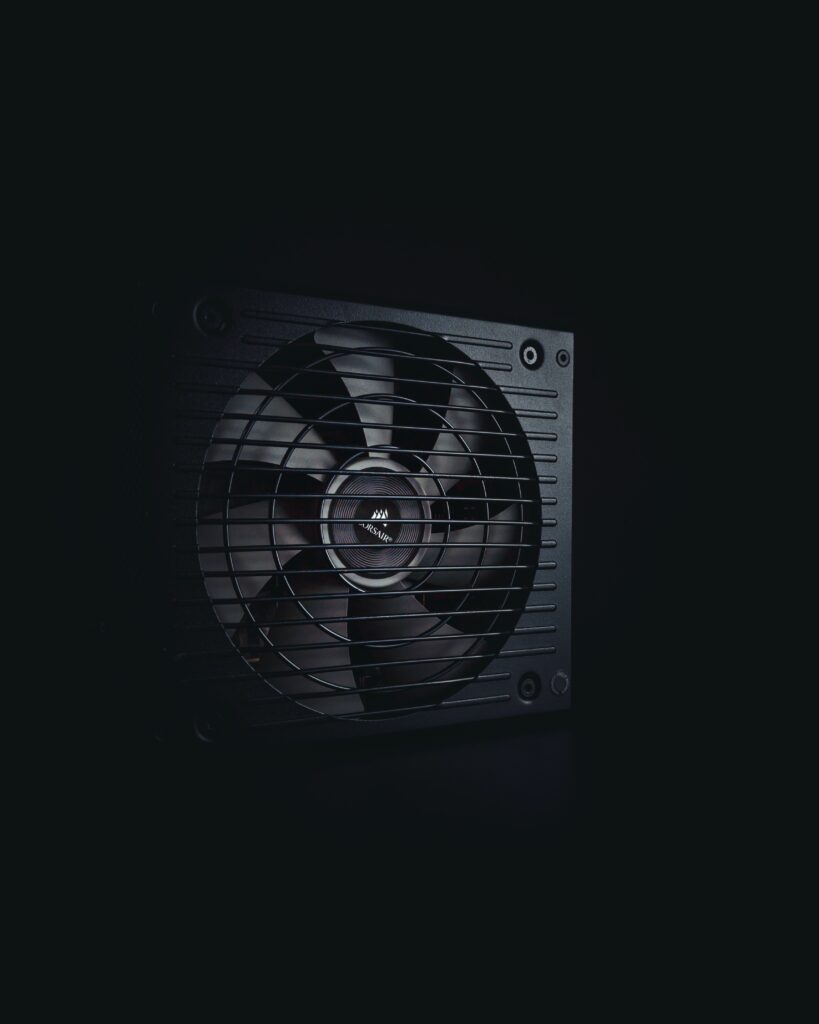

Introduction to Power Supplies: A computer power supply is the unsung hero of your system, quietly and consistently delivering the electrical energy required for all your computer’s components to function. It’s often overlooked but plays a critical role in keeping your computer running smoothly.
Components of a Power Supply: At its core, a computer power supply is a complex device composed of several essential components. These components include the input voltage switch, power connectors, a cooling fan, and a web of cables that supply power to various parts of your computer.
Voltage Outputs: Power supplies produce different voltage outputs, each designed for a specific purpose. The most common voltage outputs include +3.3V, +5V, +12V, and -12V. These outputs are crucial because different computer components require different voltage levels to function properly.
Wattage Rating: The wattage rating is a critical aspect of any power supply. It indicates how much power the PSU can provide to your computer. Selecting the right wattage is essential because it ensures your power supply can meet the power demands of your specific components without straining or overheating. Selecting the right wattage for your computer’s power supply is a fundamental step in building a reliable and efficient system. Choosing a power supply with an appropriate wattage ensures that your components receive the necessary power without overloading the PSU or wasting energy. Determining the ideal wattage for your power supply involves assessing the power needs of your system components. Make a list of all the hardware you intend to install, including the CPU, GPU, storage drives, and any additional components. Manufacturers often provide power consumption specifications for these components, which can serve as a reference.
ATX Form Factor: The ATX (Advanced Technology Extended) form factor is the industry standard for power supply and case compatibility. Understanding the ATX form factor is crucial when choosing a power supply, as it ensures that the unit fits your computer case and aligns with your components. When choosing a power supply, it’s essential to consider the ATX Form Factor to ensure it fits into your computer case. The standardization of ATX ensures that you can easily find a power supply that matches your case and motherboard, reducing compatibility concerns and simplifying the building process.


Efficiency and Energy Consumption: Power supply efficiency is a vital consideration in today’s environmentally conscious world. Efficiency ratings, often referred to as 80 PLUS, indicate how effectively the power supply converts electrical energy into usable power for your computer. Higher efficiency power supplies not only save energy but also generate less heat, which contributes to a cooler and quieter system.
Importance of a Reliable Power Supply: A dependable power supply is the cornerstone of a stable and long-lasting computer system. Selecting the right power supply not only ensures your computer’s performance but also safeguards your valuable components from power-related issues. The power supply might be behind the scenes, but its role in your system’s health cannot be overstated.
Consider Special Requirements: Certain components, such as high-end graphics cards and multi-core CPU’s, have higher power demands. If you plan to use power-hungry components, take their power requirements into account when selecting your power supply. Some GPU s, for instance, may require additional power connectors directly from the PSU.
Modular vs. Non-Modular Power Supplies: Consider whether you prefer a modular, semi-modular, or non-modular power supply. Modular power supplies offer the flexibility to connect only the cables you need, reducing cable clutter within your case. This not only enhances airflow but also simplifies cable management.
Budget and Quality: While it’s tempting to opt for the highest wattage power supply, it’s essential to balance your wattage selection with your budget. Power supplies come in a range of price points, and it’s possible to find quality units that match your needs without breaking the bank. Prioritize reputable brands and models with good user reviews to ensure reliability.
In this blog article, we have delved deeper into the world of computer power supplies, exploring the factors to consider when choosing the right PSU for your system and how it impacts your computer’s overall performance. Understanding these basics is the first step toward harnessing the full potential of your computer’s power supply.



